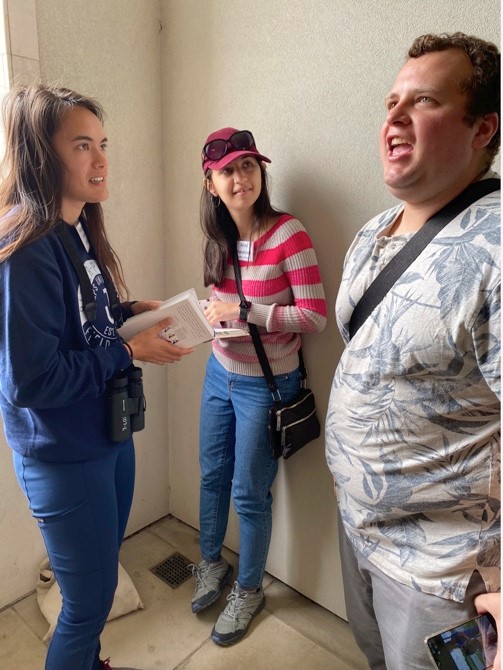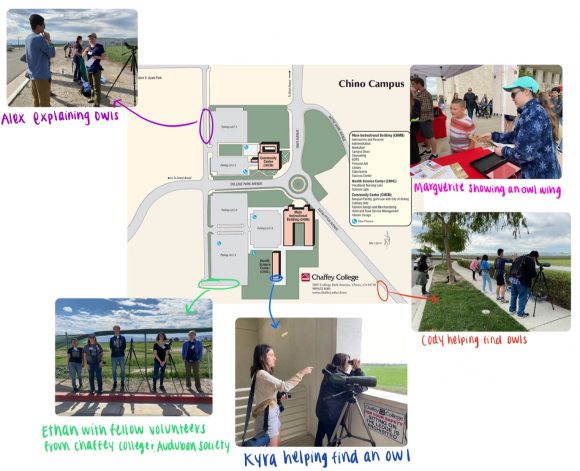This post is authored by Tessa who is a junior in the class Avian Ecology at Pomona College:
I had a great time volunteering and attending the Burrowing Owl Festival in February. It made me realize how easy it is to get involved in the education and conservation of birds. Not to mention, the burrowing owls were adorable and great subjects for the day!
The Festival:
The Festival was organized by Robin Ikeda, a biology professor at Chaffey College, Chino and the Pomona Valley Audubon Society. The Chino campus is home to 15 burrowing owls, yet their existence is threatened by potential development by the college. The Festival is put on in order to educate the community and bring awareness to the owls’ existence and need for conservation. Despite being under the protection of the Migratory Bird Act in the United States, there are few burrowing owls left in the Inland Empire due to loss of habitat, nonnative predators and pesticides. With the help of volunteers from Chaffey College, the Audubon Society and Pomona College, around 500 people showed up. Let’s hope for 600 next year!
The Burrowing Owls:
- Burrowing owls prefer open grassland, farmland and prairies, however that land has been decreasing as construction increases
- They nest in the ground, and often times their burrows are dug by ground squirrels
- The owls like to stay close to the ground and guard the front of their burrows
- They are 7.5-11 inches long and weigh 4.9-8.5 ounces
- There is little sexual dimorphism between the males and females
- 33% of their population was lost between 1966-2015
The stations:
There were 4 different bird watching stations: one on the west side of campus viewing the mounds, one on the south side of campus viewing the ravine, one on the second floor of the Health Science Center with a view of the south field and the mounds and one on the far southeast side that viewed a field. Each station was equipped with a volunteer to guide and answer questions and a spotting scope. In the plaza, there were several different information tents, including the Audubon Society tent that had an owl wing and pellet on display for educational purposes.
Conservation:
Conservation is crucial in order to maintain the habitats and population of the burrowing owls. In addition to maintaining the Chino campus owl habitat, the Pomona Valley Audubon Society is trying to save the habitat of the burrowing owls located near the Ontario Airport that the airport plans to build on. Bringing the issue that these owls matter to people is important. That is why educational events to the public, like the Burrowing Owl Festival, are necessary. In addition, volunteering to build and track artificial burrows, keep house pets away from burrows and advocating on a policy level are all things that everyone can do. I am hopeful that events like this Festival will teach people the importance and urgency of conservation.


